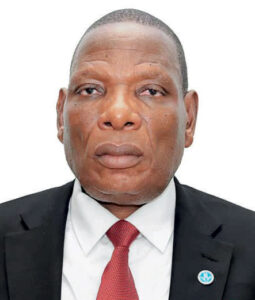
By Isaac Salima:
Malawians are eagerly waiting to see how the government will address pressing issues when parliamentarians begin their mid-term budget review deliberations.
Eyes are on the Ministry of Finance, which will have to handle several things that are likely to be incorporated in the budget.
The government will be required to source funds to meet the demands of parliamentarians and ward councillors. Their requirements include salaries and other benefits.
The country has an additional 31 members of Parliament (MPs) following the demarcation of constituencies, an exercise that culminated in the increase of the number of lawmakers from 193 to 229.
Of course, the Malawi Electoral Commission (Mec) is yet to conduct polls in five constituencies due to various reasons.
And the number of ward councillors will move to 509 from 462, which is an increase by 47.
As at now, the country has 502 ward councillors as Mec did not conduct elections in seven wards.
According to figures from the National Assembly, currently, an MP gets a basic salary of K2,035,712 per month.
The legislators also receive, among other benefits, a chauffeur allowance of K528,005, special house allowance of K580,800, security allowance of K528,005, utility allowance of K414,480 and K1.6 million fuel allowance per month.
A simple calculation for the above-mentioned things shows that the country will be required to cough over K1.3 billion per month to pay its legislators.
And, in a year, the country will be coughing over K16 billion for lawmakers.
However, the figure excludes other benefits.
And the Treasury through local councils, should also anticipate spending more money on honoraria for ward councillors.
Currently, a ward councillor gets K150,000 honoraria per month and 40 litres of fuel allowances direct from the council.
The Treasury will be required to pay the councillors over K76 million per month while, for fuel, councils will be spending about K52 million per month on councillors.
This is an increase from K69 million that the government is paying councillors as honoraria while, for fuel, local councils currently spend a sum of K47 million on councillor payments.
And that is not all. Malawians also want to know how the government will implement the promise to allocate K5 billion to every constituency for Constituency Development Fund (CDF).
Currently, the CDF allocation is pegged at K220 million per constituency.
If the K5 billion allocation is implemented, it means that the government will be coughing about K1.1 trillion for CDF alone.
And the government will also have to source funds to fund the free education [except boarding fees] which it promised.
Recently, Mutharika told the nation that free secondary education would roll out in January next year.
Finance and Economic Planning Minister Joseph Mwanamvekha said they are not under pressure over the issues.
“When we were doing our manifesto, we knew what would be the source of funds to implement that. We knew that the number of MPs and councillors would increase. So, I would like to assure all Malawians that whatever is in our manifesto will be implemented,” he said.

“My headache is on how the immediate-past government has left [the coffers]. The public debt is at K2.16 trillion. That is my headache. The other headache is to ensure that we have enough forex to address the issue of fuel challenge, fertiliser, food and medicine. Issue of salaries and benefits of MPs are mandatory,” he added.
Asked if the K5 billion for CDF would appear in the mid-year budget review statement, Mwanamvekha said that he could not answer the question now.
“At the moment, officials at the ministry are busy working on the budget but if you can ask me that question next week, I will be able to answer,” he said.
Economist Happy Chirwa said it would be a tricky situation for the new government.
“The budget that is going to be reviewed was prepared by the former government and it will be reviewed by the new government. It is something scary and raises questions that border on whether something is going to be done or not. However, if we can be prudent enough, in terms of our expenses, and deal with the problem of corruption, that can be achieved. What must be avoided is killing Malawians with heavy taxes,” he said.
Recently, Mutharika said his administration would put measures aimed at addressing immediate short-term challenges.
The 2025-26 national budget was pegged at K8.08 trillion K6.06 trillion for recurrent expenditure and K2.02 trillion for development expenditure.








